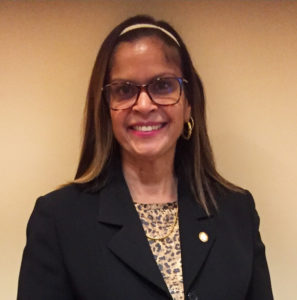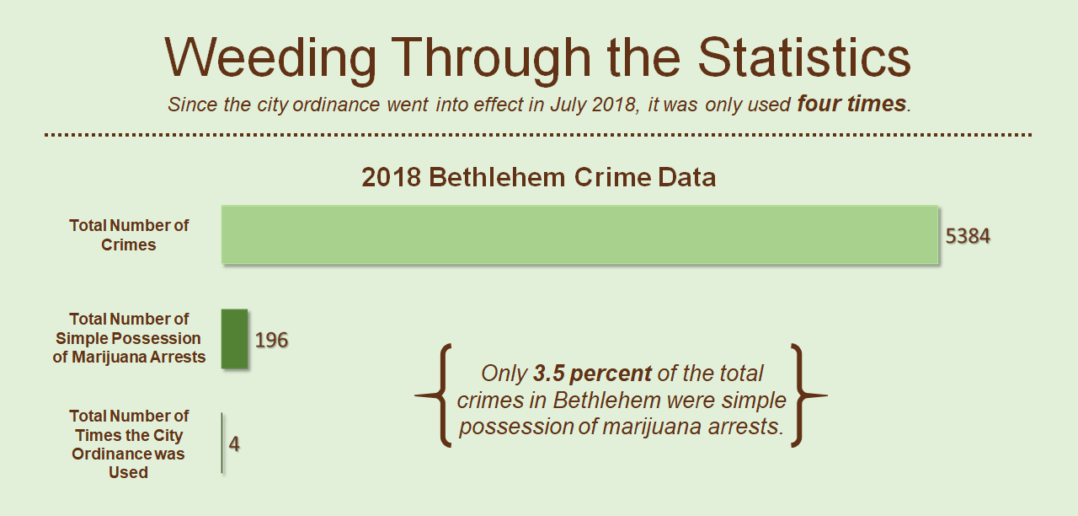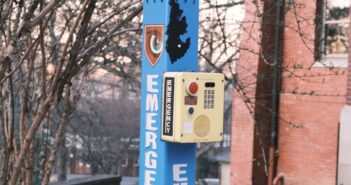When Bethlehem unanimously passed an ordinance last June to decriminalize marijuana, city officials knew implementation of the legislation wasn’t going to be easy.
However, after Bethlehem Police Chief Mark DiLuzio released numbers regarding his department’s enforcement of the ordinance, the situation became more tense.
The ordinance allows city officers to use discretion when determining how to charge an individual who is found in possession of 30 grams of marijuana or less: either charge under the state misdemeanor law, which could mean prison time, or issue a summary ticket citation under the new city law.
A summary offense does not go on one’s criminal record, unlike a misdemeanor offense.
An individual caught with a small amount of marijuana will be fined $25 for the first offense and up to $150 for a fourth offense in one year under the ordinance’s guidelines, if the officer chooses to apply the city law.
But Bethlehem is split between two counties, Northampton and Lehigh. Three-quarters of the city’s 75,000 residents, including Lehigh University, are in Northampton County under the jurisdiction of District Attorney John Morganelli, who has determined that he will not interfere in the decriminalization ordinance.
Jim Martin, though, the district attorney of Lehigh County, has decided that Bethlehem’s decriminalization ordinance is not valid in Lehigh County.
“Mr. Martin is opposed to decriminalization on a local level because state law preempts the field and controls,” read a statement from Martin’s office. “Therefore, he has instructed local police in Lehigh County to enforce the law of the Commonwealth.”
Martin declined to comment further.
Barring other factors, like the violator’s interactions with the police officer and other possible crimes committed in addition to possessing marijuana, an individual carrying a small amount of marijuana could either go to jail or pay a $25 fine based solely on the location of the crime.

Bethlehem Councilwoman Olga Negrón said Bethlehem officers can and should go against Lehigh County District Attorney Jim Martin and charge individuals possessing small amounts of marijuana under the new city ordinance when possible. Negrón is the sponsor of the city’s decriminalization legislation and has worked with Martin in the past. (Courtesy of Olga Negrón)
Bethlehem City Councilwoman Olga Negrón, the sponsor of the city’s decriminalization legislation, said Bethlehem officers can and should go against Martin’s wishes.
“If you think about it for real, let’s say you’re a police officer,” Negrón said. “I’m walking, I’m drunk and you stop me, and I have a small amount of marijuana in my pocket. If you give me a ticket, nobody will ever know — Jim Martin will not know — because it doesn’t have to get to him. I’m like, ‘What’s the fear? If they give a ticket, Jim Martin will not know.’ So they (police officers) need leadership…I think they should be doing that even in Lehigh County.”
DiLuzio said he won’t go against Martin and will enforce the ordinance differently based on jurisdiction so long as the two DAs disagree on the enforcement.
“No, number one, you can’t do it,” he said. “The DA is the top law officer in each county…To make a statement like that is irresponsible. We’re not going to do that just because he’s a Republican, and she’s a Democrat, and they have a different opinion on marijuana…If politicians want to argue among themselves, you do it. Don’t use the police.”
Negrón said she and Martin go back to when she worked in Allentown, and the two collaborated on the city’s “Weed and Seed” program designed to root out crime. She was surprised when Martin proved “stubborn” and came down against decriminalization because she said Martin was supportive of her initiatives to engage with the Allentown Latino community regarding economic and leadership opportunities for Hispanic youth.
She attributed Martin’s opposition to one thing: “Because he’s a Republican.”
The impact of the ordinance
DiLuzio said the city ordinance has been used four times since it went into effect on July 15, 2018. Though the city could not provide a record of the number of marijuana violations since then, DiLuzio reported 196 incidents for “simple possession of marijuana” in 2018, the most in any single year going back to 2012.
With 5,384 total crimes in Bethlehem in 2018, DiLuzio said the 196 for marijuana account for 3.5 percent of all crime.
DiLuzio said with 154 officers, it averages to only a little more than one marijuana arrest per officer per year.
For comparison, Easton had 59 reported offenses of marijuana possession in 2018 out of 1,357 total crimes, meaning that marijuana accounted for about 4.3 percent of crimes, according to Pennsylvania’s Uniform Crime Reports.
“We are not out running around looking for people smoking weed,” DiLuzio said in an email.
Because the ordinance has not been in effect for a full year, complete data was not available.
Negrón, though, was not happy that the ordinance has only been used four times since its passage.
She has requested that DiLuzio file quarterly reports so she can track the police’s enforcement of the ordinance. Negrón wants these reports to specify what the individual was initially stopped for, allowing her to see whether or not the ordinance would apply to that person.
“When the chief reported it, he even said, ‘I’m surprised that it’s only four,’” Negrón said. “So even he was not expecting it. I was very disappointed, needless to say…We had a good conversation, and it helped to have that conversation at that point because it cleared our minds with how we want to move forward with this.”
Negrón said she “totally understands” if an individual was charged under the state misdemeanor for being caught with marijuana while driving. She also said she doesn’t blame officers for being “confused and afraid” because they are the ones dealing with individuals, but she wasn’t willing to completely excuse the report she saw from DiLuzio.
“The bottom line is the chief… has detectives and sergeants, and he doesn’t talk directly with officers out on the street, but this is about leadership,” she said. “I expect that this is coming down from (DiLuzio).”
On campus, Lehigh Police Chief Jason Schiffer said his department has also issued four summary citations since the ordinance was passed. While marijuana odor calls for the 2018-19 academic year are at their lowest in a five-year period, the number of general drug-related incidents was at its highest, 31, in that same period.
Schiffer said it would be difficult for a police chief to implement Negrón’s suggestion of opposing the DA on law enforcement.
“The working relationship that’s necessary between the district attorney and the police department is essential,” he said. “So to go against the district attorney’s wishes in saying he doesn’t want those offenses charged under that (city ordinance), that would be a difficult line to walk. It’s an interesting perspective, and I can see where she’s coming from, but these issues look differently depending on where you stand. From Chief DiLuzio’s position, that would be a hard thing for him to do, but from the position of an elected councilwoman, she has the luxury and ability to voice that opinion…but that doesn’t mean that that’s what the chief is going to do.”
While Schiffer said the ordinance could potentially save money by avoiding court expenses related to misdemeanor charges, he said officers would not be unfairly looking for ways to issue summary citations.
Schiffer said when he was BPD chief, if a person ran a stop sign, the fine was $25, but the total cost could end up well over $100 with fees. The city collects half of the fine charge, he said.
“I can say definitively…the cost associated of even writing one citation so far exceeds $12.50,” Schiffer said. “And if someone wanted a hearing, the police officer gets paid to go to the hearing. It’s a full loss. There is no money to be made from writing citations. The more citations you write, the more money it costs.”
Goals of the ordinance
Negrón said she knew Martin was planning to oppose the decriminalization ordinance when it was only in its planning stages — well before the council’s vote.
But to her, it was important to move ahead anyway.
“Goal number one: send a message to state legislators,” she said. “Goal number two was that even though Lehigh County was not on the same page, that we will make a difference in some individuals that might’ve otherwise had a state record and handicap their future in many places.”
Jeff Riedy, the executive director of Lehigh Valley’s NORML chapter, a national organization dedicated to reforming marijuana laws, said he was “instrumental” in discussing Bethlehem’s decriminalization efforts with council members and assisted in writing the text of the ordinance.
Like Negrón, he said he kept the bigger picture in mind despite the challenges posed to full city-wide decriminalization.
“I did have hesitation, but we felt it was more important to get this on the books and at least get 75 percent of Bethlehem under the umbrella of decriminalization,” Riedy said. “We reached out to Jim Martin, and he was stubbornly opposed to it, and speaking with other people who have tried to prod Jim Martin — it was a futile effort. The best choice was to put it in Jim Martin’s space, and pass the ordinance, and force his hand.”
Negrón said although the effort to pass decriminalization took extensive education campaigns, the positive feedback she’s received from the community and the change she said she’s making is what fueled the legislation.
She released information on social media in the months before the ordinance was brought to a vote to combat “misconceptions” that marijuana is a gateway drug. Negrón said marijuana should not be classified by the federal government as a Schedule I drug, and she questioned why other addictive substances such as alcohol or cigarettes are legal when they are “much more harmful and cause dependency.”
She said the harsh legal consequences for possession of marijuana are ruining people’s lives.
Negrón recounted one story she heard from a constituent who was smoking marijuana in her parked car in her driveway after working 10-12 hours. The woman said she was going to sleep after smoking.
When a neighbor called the police after smelling marijuana, she ended up losing her job.
Negrón said those are the instances that “really damage somebody.”
“Talking about health and well-being, the other (aspect) is what it does in terms of a record — how handicapped people can be in terms of education, better jobs,” Negrón said. “That creates a vicious cycle. Once you are not able to get a better education because you don’t quality for some scholarship, for example, or get better jobs because of your record, you are now stuck in a circle that is vicious, and you’re not going to move ahead. So, we’re handicapping individuals by doing this.”
The future of marijuana law
Riedy said the trend right now is “definitely” moving toward legalization.
“Thirty years ago, we had less than 20 percent in favor of legalization,” Riedy said. “Right now, national polls are at 60 percent, often as high as 65-70. The national trend is in favor — 30 states with legal medical marijuana — it’s just becoming more acceptable across society.”
Riedy said he visits Harrisburg, Pennsylvania, almost weekly to lobby both opponents and proponents of decriminalization. He said there are bills in both chambers of the Pennsylvania House and Senate that would decriminalize or legalize cannabis.
“Will it pass this session?” Riedy said. “I doubt it, because we are Republican-controlled in Harrisburg. But, we’ve got two years to push those bills.”
At least six municipalities in Pennsylvania have passed decriminalization measures so far, including Philadelphia and Pittsburgh.
In the Lehigh Valley, marijuana will be an issue in which the candidates running for district attorney in the November election maintain clear distinction from one another.
In fact, the fate of the marijuana decriminalization ordinance in Bethlehem could be up to the voters.
Martin’s term is up this November, and Democrat Jim Moreno is challenging him for district attorney in Lehigh County. Negrón and Riedy said Moreno has appeared open to permitting Bethlehem to enforce their decriminalization ordinance.
In Northampton County, Morganelli is exiting his post after 27 years to become a county judge, leaving the potential for a shift in policy toward decriminalization, too.
First Deputy District Attorney Terry Houck, D, who has served under Morganelli for 13 years, and attorney Tom Carroll, R, are running for the position. Houck said he would maintain Morganelli’s view on the ordinance, while Carroll’s stance is unknown, according to Negrón.
Negrón said she is endorsing both Houck and Moreno, and Riedy is also behind Moreno, though he said NORML is typically politically cautious.
Ultimately, local officials want clarity for marijuana law.
DiLuzio said he wants small amounts of cannabis decriminalized, but it has to come from Harrisburg.
“We have these hodgepodge ordinances,” he said. “It should be universal across the state…I personally don’t have an issue with decriminalization, but the way it’s being gone about is just a little unfair for the police who enforce it.”
Schiffer thought the ordinance was “a great idea.”
“It gives law enforcement another option between completely letting somebody go, and then to the other extreme, having misdemeanor level criminal charges for something that’s become completely legal for medicinal use in many places and legal for recreational use in other places,” he said. “I think it’s a step in the right direction, probably foreshadowing what will come in the future, which is full legalization.”
Negrón said she is pushing the state legislature for full legalization.
She said the time is now for Lehigh Valley voters.
“This is a perfect moment for individuals who care about this matter to pay attention and vote accordingly, so I am doing my part in those terms because that’s the power that I have,” Negrón said. “You have the opportunity to make a difference in your lives. I’ve tried to do the little bit I can do in terms of making the decriminalization ordinance, but then we need to elect people who will support it.”






Comment policy
Comments posted to The Brown and White website are reviewed by a moderator before being approved. Incendiary speech or harassing language, including comments targeted at individuals, may be deemed unacceptable and not published. Spam and other soliciting will also be declined.
The Brown and White also reserves the right to not publish entirely anonymous comments.
2 Comments
Excellent article! You did a great job and a real deep dive on the issue, bravo and thank you. One correction, there are 11 cities that have decriminalized cannabis:
1. Philadelphia
2. Pittsburgh
3. Erie
4. State College
5. Allentown
6. Bethlehem
7. Lancaster
8. York
9. Harrisburg
10. Steelton
11. Manor Twp.
I just wonder what happens to the people who don’t smoke and have kids who have mental health disabilities to deal with the smell of marijuana and feel sick and where is our rights. When police do nothing, I have to have my house smell all day by my neighbor who lives with her grandparents, and she’s 19 and smokes illegal marijuana all while having a medical card and has numerous amounts of people smoking with her. my house then smells what about single mothers like me or older people where is our rights??